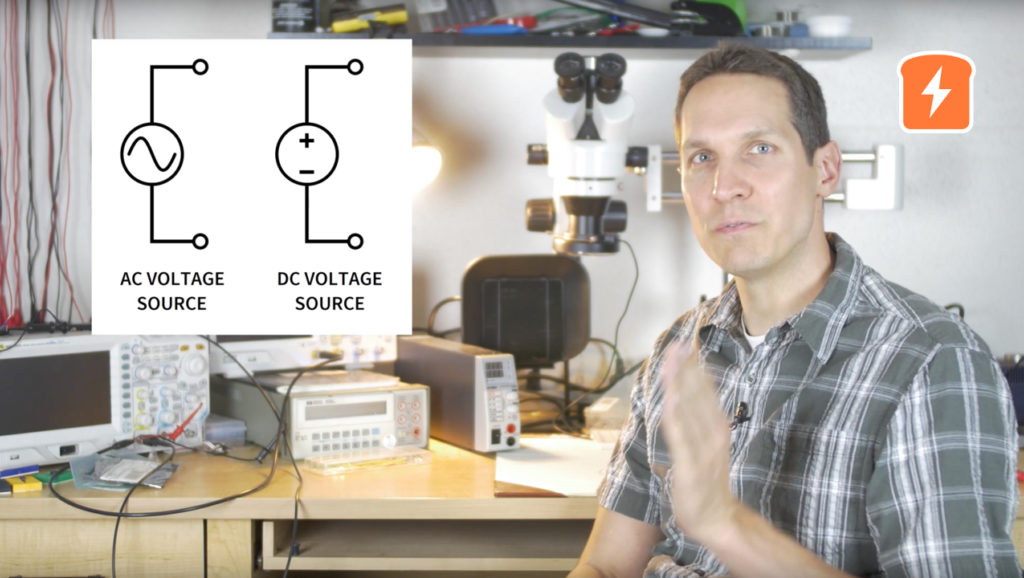Capacitor
A capacitor is a device designed specifically to exhibit a certain capacitance while minimizing its unwanted resistance and inductance characteristics. Their capacity is measured in farads, which is defined as when one coulomb of charge creates a one volt differential. Traditional capacitors have relatively small capacities, much less than one farad, but supercapacitors, a hybrid capacitor of sorts, can have thousands of farads of storage. Capacitors can be nearly too small to see while supercapacitors can be anywhere from coin sized up to large enough to make people think they’re a drinking bottle. Capacitors have a similarly wide variations on the voltages they can withstand.
It consists of two conducting plates separated by an insulator (or dielectric.)
Fundamentals of Electric Circuits, 5th Edition by Charles K. Alexander and Matthew N. O. Sadiku
Device used to store electric charge.
Grob’s Basic Electronics, 11th Edition by Mitchel E. Schultz
A capacitor is a device that stores electrical energy in an electric field. It is a passive electronic component with two terminals.
The effect of a capacitor is known as capacitance. While some capacitance exists between any two electrical conductors in proximity in a circuit, a capacitor is a component designed to add capacitance to a circuit. The capacitor was originally known as a condenser or condensator.[1] This name and its cognates are still widely used in many languages, but rarely in English, one notable exception being condenser microphones, also called capacitor microphones.









